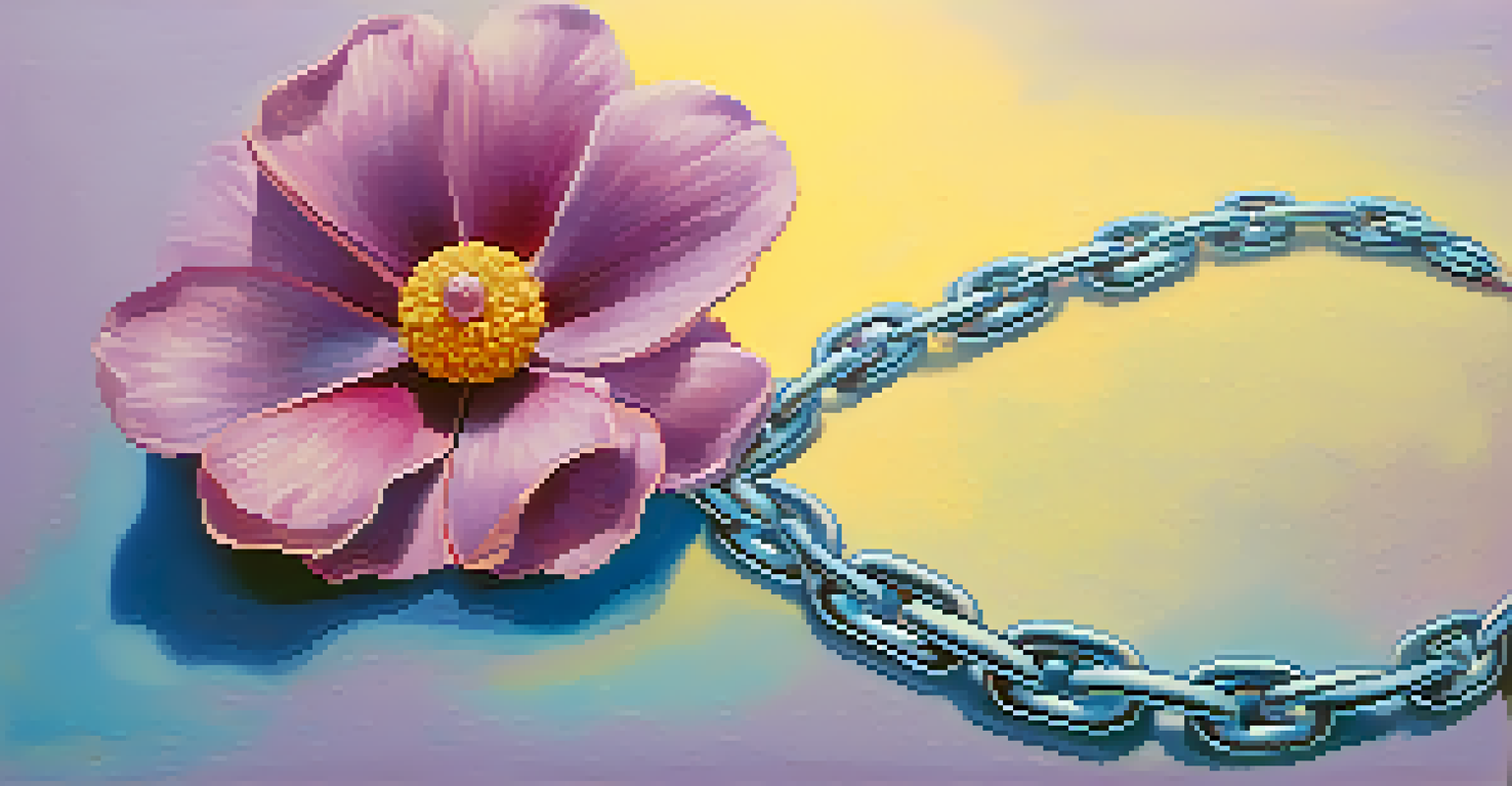Understanding Forgiveness: A Path to Inner Peace

What Is Forgiveness and Why Is It Important?
Forgiveness is often viewed as a gift we give to others, but it's really a gift we give ourselves. It involves letting go of resentment and anger, which can be burdensome. By understanding forgiveness, we can see it as a tool for our own mental and emotional well-being, rather than just a way to ease someone else's guilt.
Forgiveness is not an occasional act, it is a constant attitude.
When we hold onto past hurts, we carry that weight with us, impacting our relationships and overall happiness. Forgiving does not mean condoning the actions that hurt us; it simply means freeing ourselves from the negative emotions tied to those experiences. This process can lead to profound inner peace, allowing us to move forward in life.
For instance, consider a time when someone let you down. Holding onto that feeling can be like carrying a heavy backpack everywhere you go. But once you choose to forgive, it’s as if you’ve taken that backpack off, making it easier to walk your path to happiness.
The Emotional Benefits of Forgiveness
Forgiveness can lead to significant emotional relief. When we forgive, we actively choose to release feelings of anger and resentment that can cloud our judgment and happiness. This release can create space for more positive emotions, such as compassion and understanding.

Research shows that forgiving can lower stress levels and improve mental health. It’s not just about the other person; it’s about reclaiming your emotional space. When you forgive, you’re saying yes to your own peace and well-being.
Forgiveness is for Your Peace
Letting go of resentment not only eases emotional burdens but also enhances your mental well-being.
Imagine carrying a grudge like carrying a rock in your pocket. Each step you take can become more burdensome. However, by forgiving, you can lighten your load and navigate through life more freely.
Forgiveness vs. Reconciliation: Understanding the Difference
It's essential to distinguish between forgiveness and reconciliation. Forgiveness is a personal decision to let go of resentment, while reconciliation involves rebuilding a relationship. You can forgive someone without reconciling with them, and that’s perfectly okay.
The weak can never forgive. Forgiveness is the attribute of the strong.
Sometimes, the best choice for your health is to forgive and move on, especially if the relationship was toxic. This distinction allows you to prioritize your well-being while still acknowledging the hurt you’ve experienced.
Think of forgiveness as a key that unlocks a door. You can choose to open the door and walk through, or you can leave it closed. Forgiveness opens up new possibilities, but whether to walk through is entirely up to you.
Steps to Cultivating Forgiveness in Your Life
Cultivating forgiveness is a process that can take time and effort. Start by acknowledging your feelings, as bottling them up can hinder your ability to forgive. By recognizing the hurt, you create a foundation for healing.
Next, try to understand the perspective of the other person involved. This doesn’t mean you have to agree with their actions, but empathy can help you see the situation differently. Sometimes, understanding their motivations can make it easier to let go.
Self-Forgiveness is Essential
Recognizing and forgiving our own mistakes is crucial for personal growth and inner peace.
Lastly, practice self-compassion. Forgiveness is a journey, and it's okay to take it at your own pace. Imagine nurturing a small plant; it needs time, care, and the right conditions to grow, just like your ability to forgive.
Overcoming Common Barriers to Forgiveness
Many people struggle with forgiveness due to deep-seated beliefs or fears. It’s common to think that forgiving means you’re excusing bad behavior or that you’ll never forget the hurt. These misconceptions can create significant barriers.
To overcome these barriers, it’s helpful to challenge those beliefs. Remind yourself that forgiveness is about your peace of mind, not about the other person’s actions. Understanding that you can forgive and still hold others accountable can free you from these constraints.
Consider the metaphor of a bridge. Forgiveness is the bridge that allows you to move from a place of pain to a place of healing. It might seem daunting, but every step you take on that bridge is a step toward freedom.
The Role of Self-Forgiveness in Inner Peace
Self-forgiveness is often overlooked but is just as crucial as forgiving others. Many of us carry guilt and shame for past mistakes, which can weigh heavily on our hearts and minds. Learning to forgive ourselves can be a transformative experience.
The process of self-forgiveness requires us to acknowledge our mistakes without letting them define us. It’s about recognizing our humanity and understanding that we all make errors. Embracing self-compassion can help us move forward with grace.
Forgiveness is a Lifelong Journey
Embracing forgiveness as an ongoing practice fosters resilience and emotional strength in our lives.
Think of self-forgiveness as a warm hug you give to yourself. It’s a reminder that everyone makes mistakes, and it’s okay to learn and grow from them rather than dwell in regret.
Embracing Forgiveness as a Lifelong Practice
Forgiveness is not a one-time event but rather a lifelong practice. Just as we strive for personal growth in various areas of our lives, forgiveness requires ongoing attention and intention. It’s about continually choosing to release negativity as new situations arise.
By embracing forgiveness as a daily practice, we can cultivate resilience and emotional strength. This mindset allows us to face challenges with a sense of peace, knowing we have the tools to let go when needed.

Imagine forgiveness as a daily exercise for your heart. Just like physical fitness, the more you practice, the stronger you become. Over time, you’ll find it easier to forgive, leading to a more peaceful and fulfilling life.